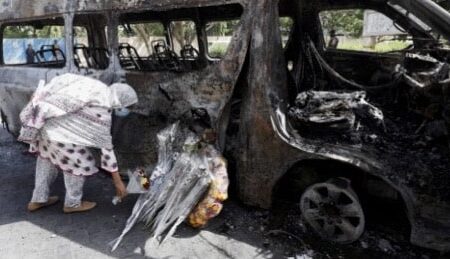China is increasingly grappling with the consequences of its “Belt and Road” initiative, including corruption, resentment, political instability and violence.
In April a woman blew herself up outside Karachi University’s Confucius Institute, killing three Chinese teachers and their Pakistani driver. The Baloch Liberation Army claimed responsibility for the attack.
Beijing then sought to bring in Chinese private security contractors. Islamabad, which provides 30,000 Pakistani soldiers to guard the Chinese, denied the request.
Instead, China is deploying technology like facial recognition and hiring more Chinese security contractors.
China chose Pakistan to invest in because of military ties and a common rivalry with India. Beijing has spent about $25 billion on roads, power plants and a port.
The Chinese are targets as they are seen as wealthier than most locals, and are perceived to be reaping too many of the economic benefits and job opportunities created by Beijing.
Raffaello Pantucci, co-author of the book “Sinostan” about China’s influence over its Muslim-majority neighbours, says that ‘Pakistan is a toxic brew for China where they have become enemy No. 1 for an array of militant groups on the ground due to their proximity to the Pakistani state’.
Last year militants rammed an explosive-laden car into a bus carrying Chinese construction workers to a dam they were building. Nine Chinese and four Pakistanis were killed. Two members of the Pakistani Taliban were sentenced to death for their role.
Last year the Pakistani Taliban tried to assassinate the Chinese ambassador at a hotel they bombed.
Ahsan Iqbal, Pakistan’s planning minister, said that China’s projects in the country were ‘not dependent on one or two odd security incidents’.
Human-rights groups say thousands of Baloch men have been taken by security forces under Pakistan’s crackdown, with many being tortured or executed. Pakistani authorities deny torture and extrajudicial killings.

